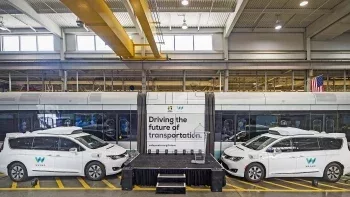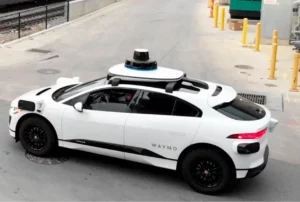A new study conducted by Arizona State University suggests there’s public enthusiasm for greater use of autonomous vehicles.
Participants in a six-month experiment among older and disabled residents in the Phoenix metro area said they felt AV services were safe, convenient and even preferable to traditional taxis or ride-share options.
The results are part of a report authored by transportation experts from the Ira A. Fulton Schools of Engineering and the School for the Future of Innovation in Society at ASU. The work was sponsored by the Federal Transit Administration and conducted for the Valley Metro Regional Public Transportation Authority of Greater Phoenix, in partnership with the Waymo autonomous-driving technology company.
Phoenix has been one of the places where driverless vehicles have been tested with the public.
“This pilot study is unique in that it was the first one to deploy a true AV-based mobility-on-demand service for members of the public to use for their regular daily trips,” said Ram Pendyala, a professor of civil and environmental engineering at the Fulton Schools and director of the Center for Teaching Old Models New Tricks, or TOMNET, a multi-university research consortium sponsored by the US Department of Transportation. “Participants could summon rides with a smartphone app, just like they would for Uber or Lyft, and take Waymo AV rides to work, shopping, dining and more.”
The experiment operated between September 2019 and March 2020 in a 100-square-mile area encompassing parts of Chandler, Mesa and Tempe, Arizona. Participating passengers were registered users of Valley Metro’s RideChoice programme, a subsidised taxi or ride-hailing service for paratransit-certified people under the Americans with Disabilities Act, or ADA, and for people age 65 and over living in the Phoenix area.
In addition to using AV transport for more than 1,100 journeys that averaged about 5 miles and 10 minutes, passengers completed surveys to offer their perceptions of safety, convenience, comfort and other factors in three stages: prior to the introduction of the AV service, during the operation of the service and after the experiment was completed.
The project goal was to better understand whether autonomous vehicles can fit within a community transit and mobility programme, and the results indicate the answer is a resounding yes. Data show a majority of participants used the AV service to engage in more activities outside the home than they typically would using conventional ride services. Three-quarters of passengers also said they would be comfortable riding alone in an AV, meaning without one of the human safety drivers who were stationed in the Waymo cars during the experiment.
(Picture – ASU)




















